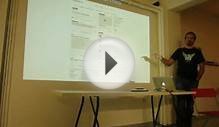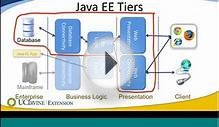
The MLIS program requires 43 units for graduation. Within those units, six courses (16 units) are required of all MLIS students and must be taken as part of all career pathways: INFO 203, INFO 200, INFO 202, INFO 204, INFO 285, and either INFO 289 or INFO 299. Beyond those six courses, a student is free to select electives reflecting individual interests and aspirations. See: MLIS Information.
If you are interested in this career pathway, you may choose to select from the Foundation or Recommended course electives listed below. Foundation courses form the foundational knowledge and skills for this pathway. If you can only select a few electives, then choose from the Foundation courses. The Recommended courses are very relevant, but not as foundational to this career pathway.
The Career Pathway described here is provided solely for advising purposes. No special designation appears on your transcript or diploma. All students get an MLIS degree.
Description
This career pathway concentrates on the theories and supporting techniques related to the design, building, and management of information systems and Web applications. These include:
- Design and development of user-centered information systems in a variety of information environments
- User interactions with information structures
- Computer/network mediated interaction with users
- Web applications
- Web site design, content creation and administration
- Web-programming languages
Students in this career path will develop skills and expertise to improve the user's experience when interacting with information systems via web interfaces. Work in information systems and design requires more than just the acquisition of a practical skill set. It is the ability to tailor technologies to various information communities. It also requires an understanding of users’ information needs and knowledge about the information-seeking behaviors of the audience.
Employment Opportunities
Opportunities exist in all types of libraries as well as information agencies, library automation system vendors, and Web design companies. Sometimes the whole job will focus on technology; sometimes part of the job will consist of designing, building, and maintaining Web content. Students who concentrate in this specialization may work as:
- systems librarians
- database coordinators
- database developers
- data mining and analytics consultants
- emerging technologies librarians
- information architects
- intelligence analysts
- knowledge integration librarians
- project managers
- reference tool developers
- systems analysts
- technology coordinators and trainers
- usability/usage analysts
- user experience designers
- virtual services managers
- Web 2.0 developers
- Web content managers
- Web designers
- Web project managers
- Web technologists
Core Theory and Knowledge
- Ability to analyze and determine library computing requirements, develop new means of delivering service, coordinate and implement new electronic services, and support ongoing services
- Communicate ideas to peers as well as clientele without the overuse of technical jargon
- Identify specific needs for technologies in information search and management
- Match needs in specific situations with the functions and applications of emerging technologies
- Utilize data mining software tools for usage and analytics research
- Understand computing fundamentals (data structures, operating systems, usability issues, Web site design and creation, Web programming/scripting languages, Web 2.0 tools)
- Understand the principles of user-centric design and style, as well as how to choose appropriate interaction methods for particular circumstances and populations
Recommended Coursework
Required Courses:
Note: For this career path, INFO 202 is the most important course. If you are not comfortable with the material and format of INFO 202, then this is not the career for you.
Foundation Courses:
Recommended Courses:
Effective leadership and management (of people and information) are critically important for all types of work environments and clients. We recommend that students consider also selecting some courses from the Leadership and Management career pathway to acquire complementary or supplementary core skills from other areas.
INTERESTING VIDEO




 Agile software development is a group of software development methods based on iterative and incremental development, where requirements and solutions evolve through collaboration between self-organizing, cross-functional teams. It promotes adaptive planning...
Agile software development is a group of software development methods based on iterative and incremental development, where requirements and solutions evolve through collaboration between self-organizing, cross-functional teams. It promotes adaptive planning...








